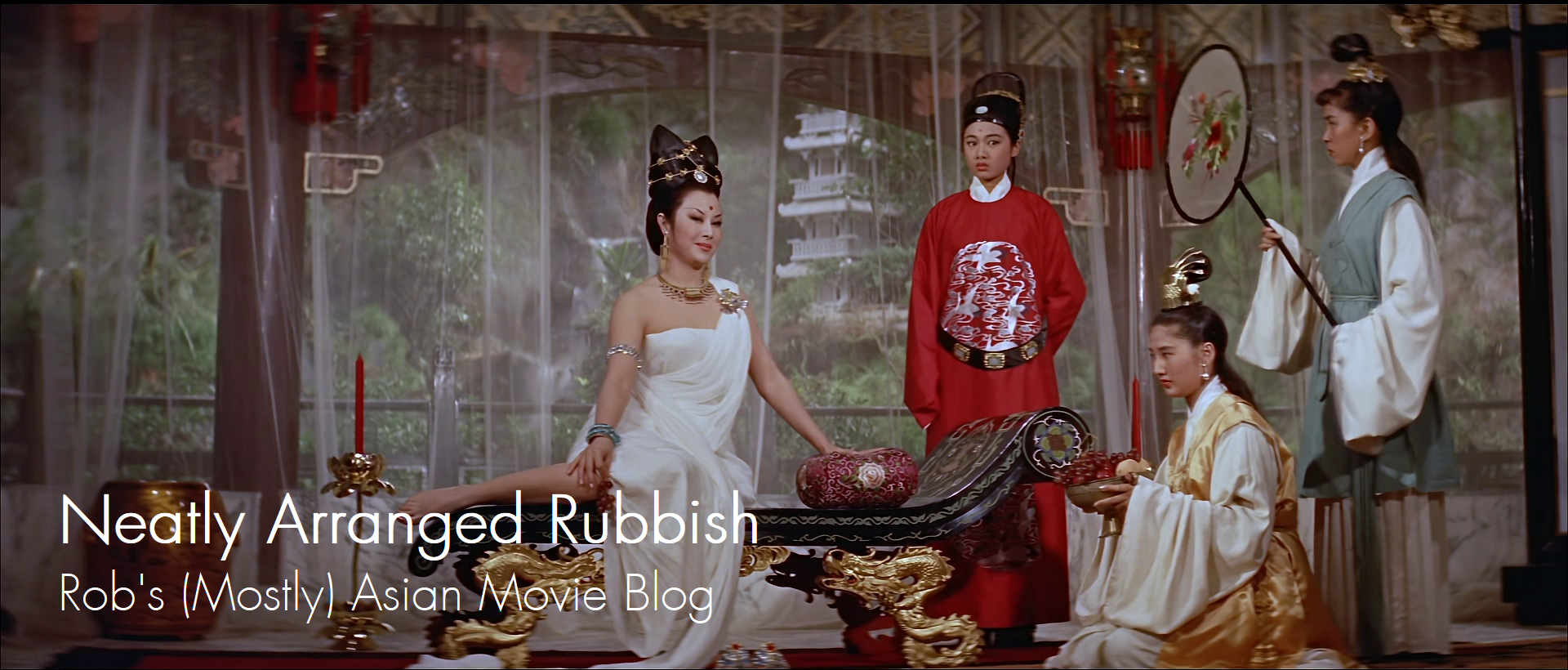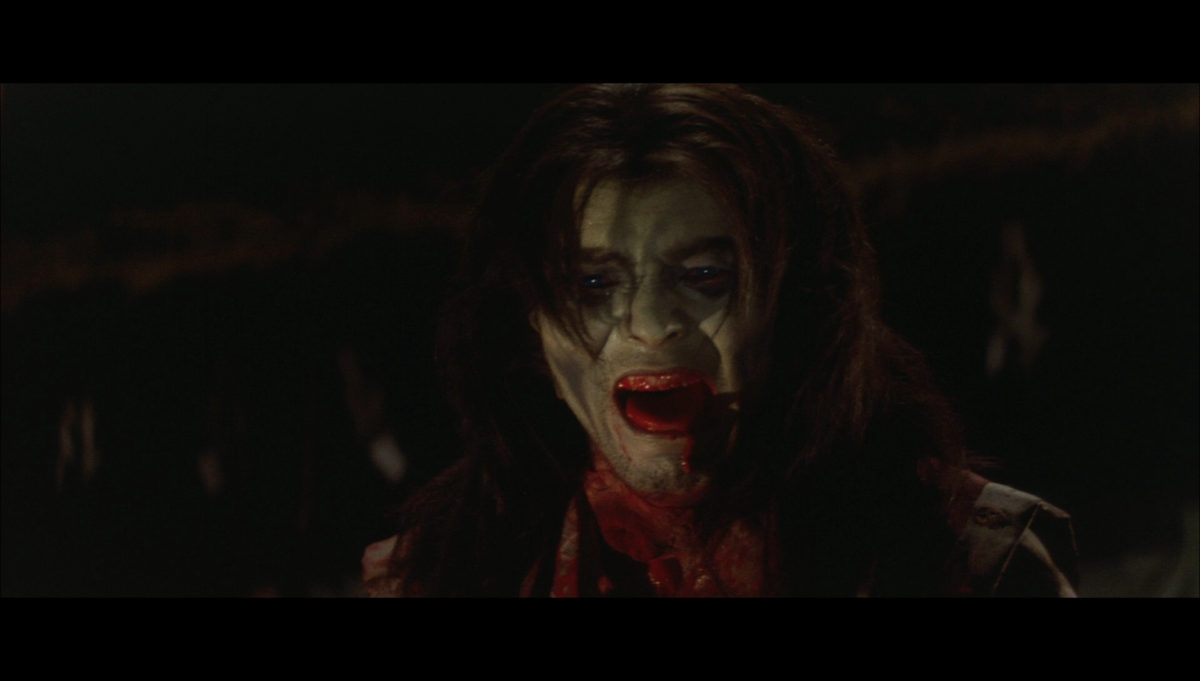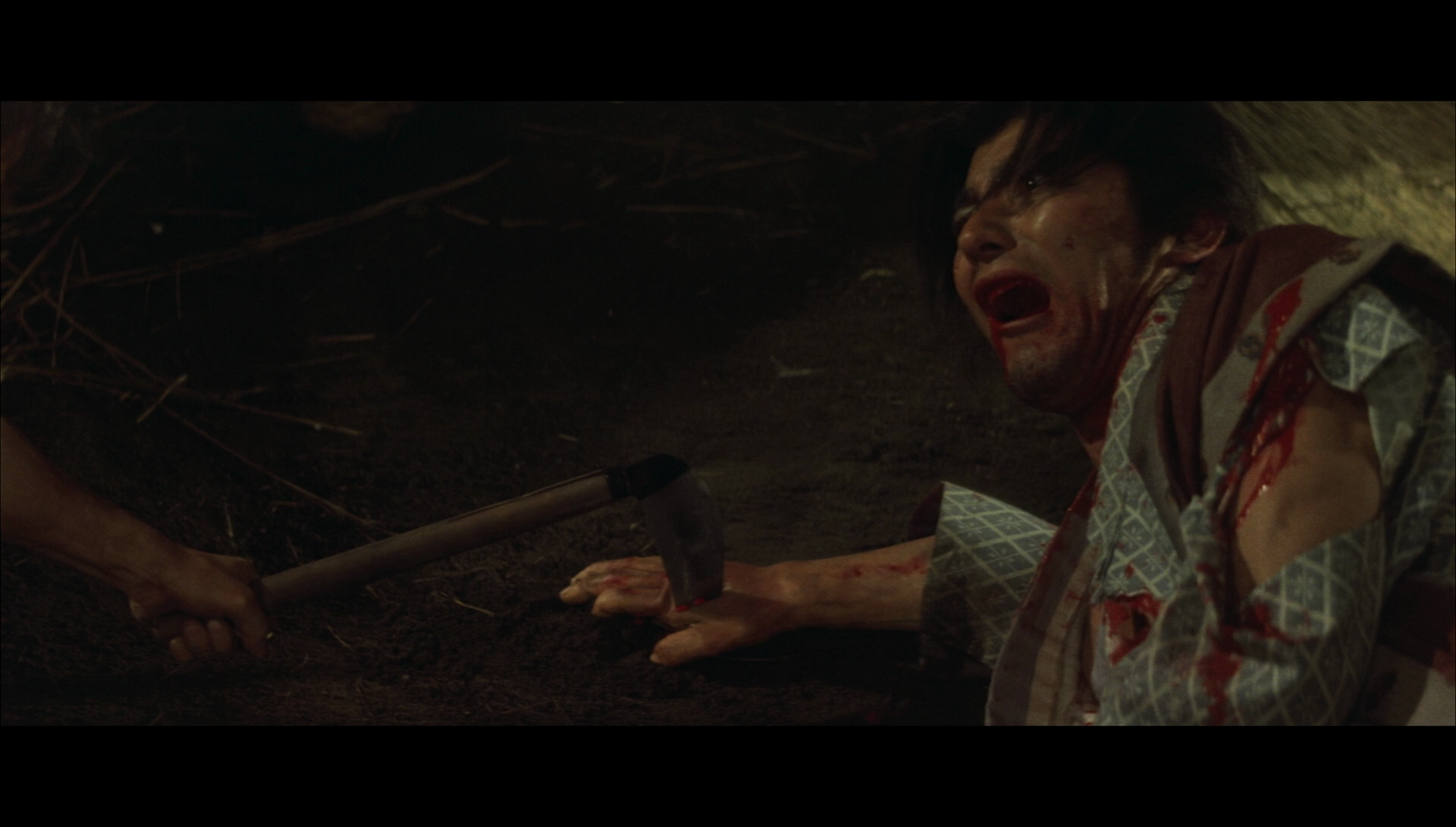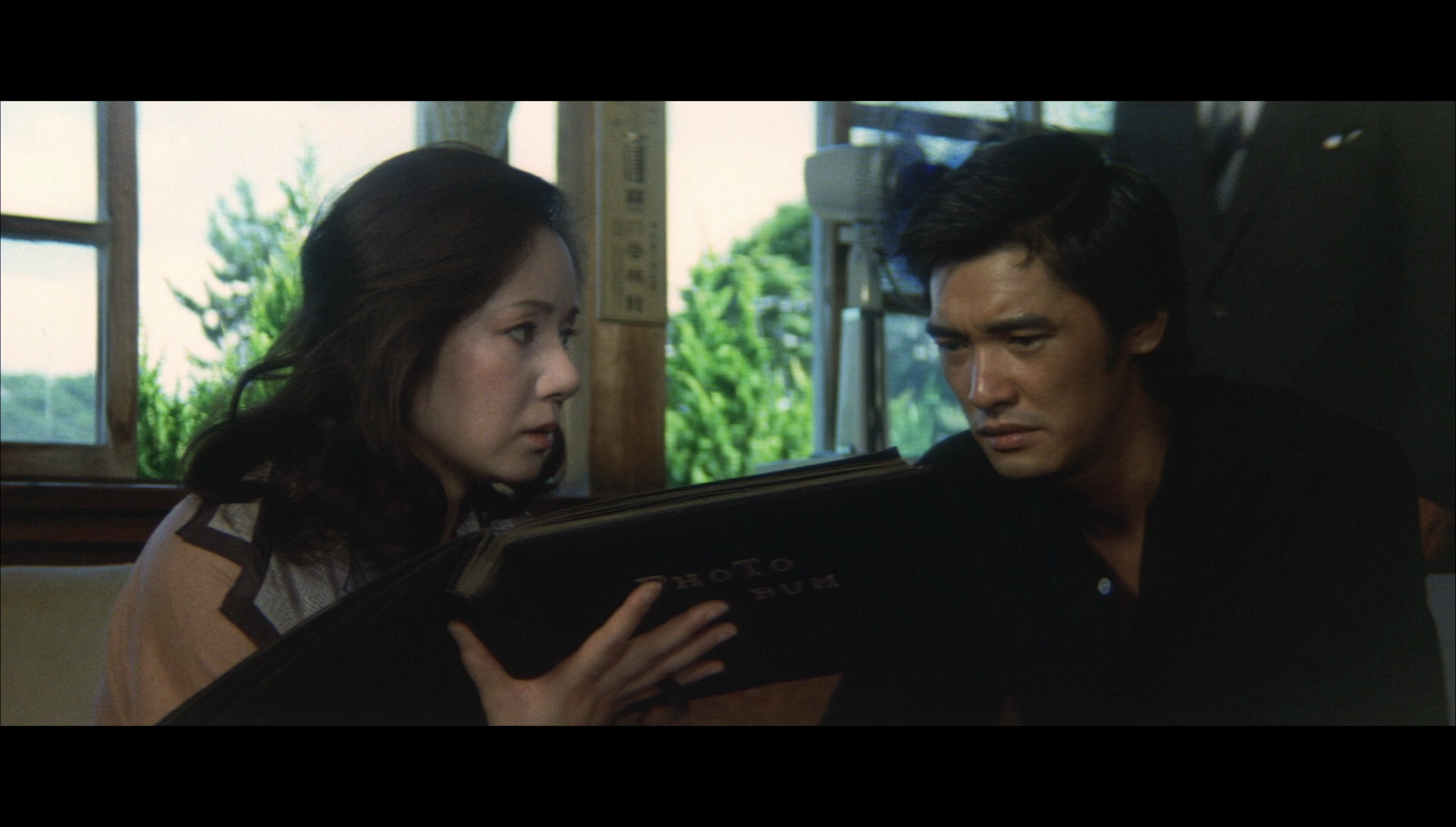Last Updated on September 29, 2020 by rob
Following the death of his grandfather a young airport worker named Tatsuya (Kenichi Hagiwara) returns to his family home in a remote valley and discovers that a curse has been placed on the village by the leader of a band of samurai warriors who were brutally murdered there 400 years earlier. As the bodies begin to pile up fearful villagers blame Tatsuya for the deaths while an attractive widow named Miyako (Mayumi Ogawa) and a private detective called Kindachi (Kiyoshi Atsumi) help Tatsuya uncover the truth.
A fantastic blend of mystery thriller, romance and supernatural horror, this big-budget, prestige production from Shochiku was a smash hit in its home country in 1977 and deservedly so. Its obscurity in the West, even allowing for the presumed greed of Japanese distributors who no doubt would like both arms and a leg for any release rights, remains downright baffling. Nomura does a terrific job in balancing an ambitious, densely plotted story with a large cast of characters while showcasing lush production values and splendid setpieces over an epic 150 min runtime. The present day mystery surrounding Tatsuya’s family as relatives gather, each coveting the family fortune only to be knocked off Agatha Christie style, is well plotted, genuinely challenging (in a good way) and features loads of potential suspects. A journey through the cave network underneath the village that may hold the key to Tatsuya’s mysterious past (what accounts for that hideous scar on his back? Why can he not remember his parents?) is downright mesmerising and enhanced in no small measure by Yasushi Akutagawa’s splendid orchestral score. Here’s the memorable title theme:
Hagiwara, a popular leading man of the period thanks to local hits such as Masahiro Shinoda’s medical drama The Petrified Forest (1973) and Koichi Saito’s romantic thriller The Rendezvous (1971), is a solid lead and he’s well supported by Mayumi Ogawa as a sexy widowed relative called Miyako with whom he takes a romantic interest, Yôko Yamamoto as his good-hearted sister and Etsuko Ichihara and Ninako Yamaguchi as a pair of creepy great aunts named Koume and Kotako. One of the things that impressed me about Eight Gravestones is that when mystery stories involve a supernatural element the latter is invariably employed merely as cover for more mundane motives.
But here the supernatural aspects are cleverly integrated into an Agatha Christie-style murder mystery in a way I’ve never seen before. You could say the film manages to both have its cake and eat it. In fact the samurai curse isn’t just alluded to but fully fleshed out in a flashback that depicts the exhausted warriors being slaughtered by the village’s ancestors, who after promising the samurai safety decide they’d rather have the reward money offered for them by a rival clan, and features some amazingly gory prosthetic makeup effects (spears in the eye, throat slittings, an axe in the hand, etc) of the kind that would become ubiquitous in the Friday The 13th films (but those were still a good few years away when this was made) and is a reminder of how much more open Japanese audiences were in this regard.
There’s no way that here in the UK the BBFC circa 1977 would have let Eight Gravestones through with anything less than an ‘X’ and probably not without cuts. The subsequent curse laid on the village by the samurai’s leader features an even more startling and graphic flashback in which Tatsuya’s father goes batshit insane and slaughters 32 inhabitants of the village with a samurai sword and a shotgun! The shadow of superstition, madness and tainted blood combines with the present day story, in which a private detective named Kindaichi (Kiyoshi Atsumi), a well known figure in Japanese pop culture (Kon Ichikawa actually directed several movies featuring the character) turns up and helps Tatsuya figure out the mystery, to gripping effect.
Indeed the more extreme aspects of the film are shrewdly contrasted with Kindaichi’s sober investigative methods. It makes for a nice balancing act. The climactic revelation of the killer’s identity is genuinely scary and finds its fullest expression in a nerve-wracking finale as Tatsuya is pursued through the maze of underground tunnels by something very unpleasant indeed. A revelation in the films final scene fuses present and past with a surprise twist proving the old adage that blood is indeed thicker than water. Any film programmers out there, the next time you’re looking to make a splash with an obscure Japanese genre movie, for goodness sake try and get hold of Village Of Eight Gravestones. I guarantee you, your audience will be impressed!



